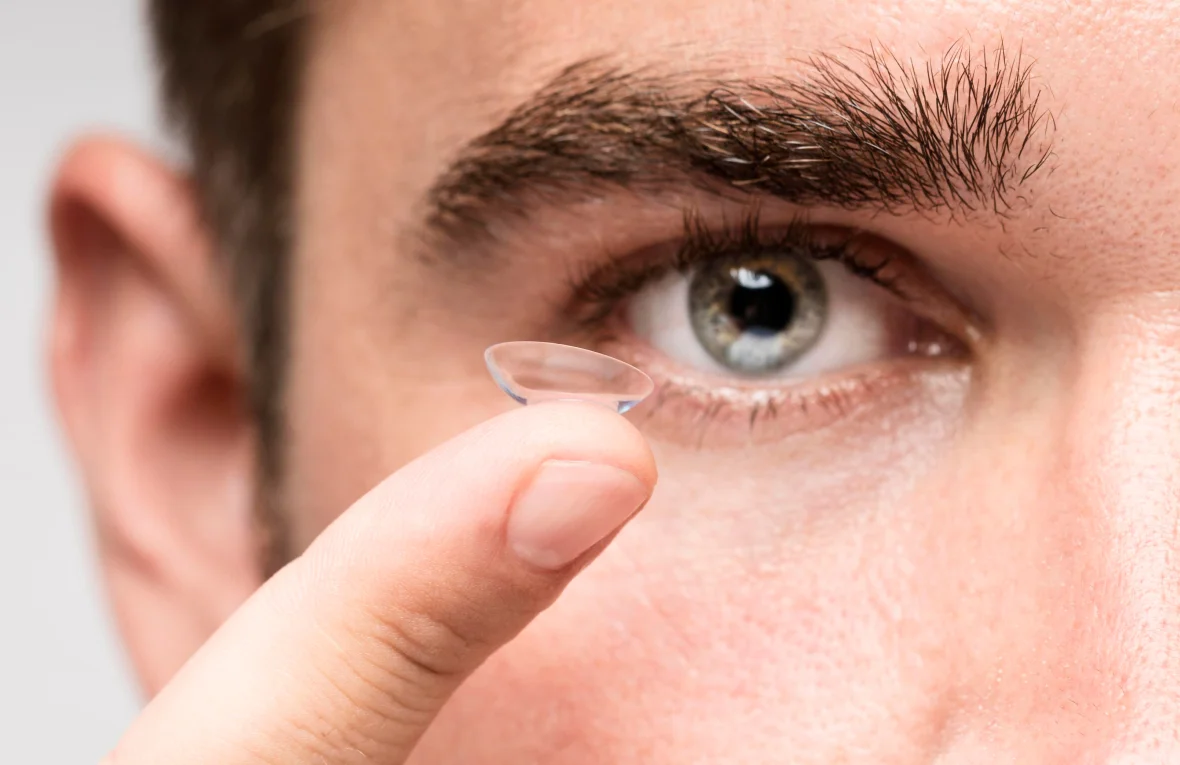About Prescription Contact Lenses
Clear Vision, Maximum Comfort – Without the Frames
At Swami Optical, we offer a full range of prescription contact lenses for people seeking freedom from glasses—whether for daily use, special occasions, or sports. Our expert opticians ensure a perfect fit, safe usage, and maximum comfort tailored to your lifestyle and visual needs.
👁️ Who Can Wear Contact Lenses?
Whether you’re nearsighted, farsighted, have astigmatism, or need multifocal correction—there’s a lens for you. With the right guidance, most people of all ages can safely wear contact lenses.
🧪 Our Process:
✅ Personalized Eye Assessment
We check your eye shape, tear film, and vision prescription to determine the most suitable lens type.
✅ Lens Trial & Fitting
Try before you buy. We provide trial lenses and make necessary adjustments to ensure comfort and clear vision.
✅ Lens Options Available:
Daily Disposable Lenses – Hygienic & hassle-free
Monthly / Bi-Weekly Lenses – Cost-effective and durable
Toric Lenses – For astigmatism
Multifocal Lenses – For distance + reading
Colored Lenses – For a new look with clarity
🧼 Hygiene & Handling Guidance
Our team offers hands-on training on inserting, removing, and caring for your lenses to prevent dryness, infections, or discomfort.
💬 Why Choose Contact Lenses?
Clear, natural field of vision
No fogging or slipping like glasses
Great for sports, dance, and events
Option for cosmetic enhancement with color lenses
Frequently Asked Questions
How often should I have an eye exam?
It’s recommended that adults have a comprehensive eye exam every 1-2 years, even if your vision seems fine. For children, their first eye exam should be at 6 months, followed by another at 3 years old, and then annually during school years. If you wear glasses or contact lenses or have a medical condition like diabetes, you may need more frequent exams.
What are the signs that I need glasses?
If you’re experiencing frequent headaches, eye strain, blurry vision (either up close or at a distance), difficulty seeing at night, or squinting to focus, these could be signs that you need glasses. A comprehensive eye exam will determine if corrective lenses are necessary.
What causes dry eyes, and how can I treat it?
Dry eyes can be caused by aging, certain medications, environmental factors, or prolonged screen use. Treatment options include artificial tears, prescription eye drops, and lifestyle adjustments such as taking breaks from screens. An eye doctor can recommend the best course of treatment based on the severity of your symptoms.
Are there ways to prevent common eye diseases like glaucoma or cataracts?
While you can’t always prevent eye diseases, there are steps you can take to reduce your risk. These include wearing UV-blocking sunglasses, eating a healthy diet rich in antioxidants, avoiding smoking, and having regular eye exams to catch any issues early. Managing conditions like diabetes or high blood pressure can also help protect your eye health.

